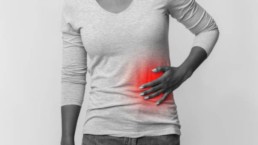The Best Pain Medication For Gastric Bypass Patients

When looking into weight loss surgery, gastric bypass surgery is a common choice for our patients. However, getting gastric bypass in Mexico also involves some pain medication after the fact.
After all, with any procedure, you’ll want to manage discomfort and pain as you recover in the following weeks. That being said, it’s important to know what pain meds you can take after gastric bypass.
That way you can avoid complications while maximizing your comfort. So keep reading, we’ll address that answer in the article below.
Related Reading: Not Losing Weight After Bypass Surgery? Here’s Why
What Pain Meds Can I Take After Gastric Bypass?
NSAIDs after gastric bypass and opioids are two common pain medications that are recommended after bariatric surgery.
However, any pain meds after gastric bypass should be monitored by your doctor. Adverse reactions and side effects can occur depending on your diet, medical history, and other factors.
Therefore, the long answer to understanding which gastric bypass pain medications are okay is to consult with your weight loss surgeon beforehand.
Why Having The Right Pain Medication After Gastric Bypass Surgery Is Important
Getting any kind of operation, such as weight loss surgery, is going to cause some slight pain after the fact. After all, even minimally invasive surgeries need an incision that needs to heal correctly.
Therefore, pain medication is a very common recommendation by your doctor or surgeon. Still, there are some reasons that you need to be careful about the pain medication you choose and not simply take anything over the counter that you may have heard about.
These reasons include:
Proper Pain Management
Sometime, over-the-counter medication simply doesn’t provide the level or mechanism of pain relief required after weight loss surgery. After all, no two pain medications are the same.
Adverse Reactions
You may be allergic or you may respond poorly to certain types of medication. That’s why blood panels and other kinds of tests are important before your surgery.
Therefore, your doctor will recommend medications that have the best chance of helping you without producing negative side effects.
Interactions
Some medications interfere with others. Therefore, your surgeon will talk to you about diet, additional medications, supplementation, and more. Just because one medication may be okay on its own does not mean it will mix well with another type of pain medication.
Learn More About Gastric Bypass Surgery
Knowing what kind of pain meds to take after gastric bypass surgery is just one element of properly preparing yourself. You also need to have the right exercise, diet, and other regimens in place. Contact our surgeons today and let’s start your journey toward a healthy weight.
Why Am I Not Losing Weight After My Bypass?

Getting gastric bypass surgery is very common among Americans — especially these days with so many societal factors that make it hard to keep the weight off. After all, it can be an excellent way to lose weight quickly and keep it off long term.
Bariatric surgery can help you achieve your short term and long term health goals, no matter what they are. That being said, you may find that you’re having issues losing weight as quickly as you expected.
Keep in mind that everybody’s body is different. Still, you should consult with your weight loss surgeon first for gastric bypass or gastric sleeve in Mexico.
That being said, keep reading this post and we’ll explore some answers to common questions you might have, such as:
- Why am I not losing weight after gastric bypass surgery?
- Why am I experiencing slow weight loss after gastric bypass?
- What should I do? — I’m not losing weight 2 weeks after gastric bypass, why?
- No weight loss 3 weeks after gastric bypass – what’s going on?
What’s A Weight Loss Plateau?
A weight loss plateau is when your weight loss stops completely. This can typically occur somewhere around three weeks after your gastric bypass surgery.
However, it can happen at any point. Weight loss plateaus typically last for a few specific reasons:
Reasons Behind Weight Loss Plateaus
It’s Natural
Understand that slow weight loss is a normal occurrence. You should not always anticipate incredibly rapid weight loss with that being said.
Your stomach’s digestive tract and metabolism will change during your recovery period. As these adjust, your organs need to change the way they handle infections and your immune system. So that’s one of the first reasons why weight loss may not be as fast as you’re wanting.
Fewer Calories
If you’re going to take in fewer calories after your weight loss surgery, this is due to a smaller stomach size.
Obviously, because of this, you might think that you’ll lose weight. But your body also adapts to fewer calories. That means your metabolism will level out eventually.
Not Sticking To Your Diet
If you don’t stick to the recommended diet that your surgeon suggests, then you could experience weight gain or significantly slow weight loss.
You need to avoid certain foods that can add calories and excess carbohydrates to your diet. Additionally, you should be eating a certain amount of protein every day, such as 65 grams or more.
You can supplement the vitamins and nutrients to keep your metabolism running full speed.
Lack Of Activity
One helpful tip to make sure that you don’t have slow weight loss is to exercise. Getting plenty of cardio and other exercise boosts your metabolism — and makes you drop the pounds faster than you would if you were more sedentary.
Reach Out For Post Gastric Bypass Surgery Information Today
Don’t hesitate to start achieving the weight of your dreams. Contact the experts at Hospital BCN.
Our surgeons are highly trained in the science of weight loss surgery and helping you reach your goals. That way you can avoid feeling hungry all the time and finally feel great again. Let’s ensure that you can enjoy a healthier, lighter tomorrow.
The Best Exercise After Gastric Bypass Surgery

A gastric bypass is an excellent beginning toward better weight and health. However, as with any weight loss goal, it’s important to consider additional factors. Aside from the surgery itself, you should make some changes to your lifestyle that can enhance and maintain the weight loss over time.
So in this post, let’s explore the best exercise after gastric bypass to do. That way, you can avoid common pitfalls when you get your gastric bypass in Mexico.
Read More: What Things Can You NOT Do After Gastric Bypass?
What Is Gastric Bypass Surgery?
Gastric bypass is part of the bariatric surgery family. It can help reduce appetite to allow you to reduce your overall weight and body fat. Typically this surgery is performed with a small incision.
Patients are able to recover fairly quickly. That being said, there is some downtime for recovery after the surgery. You may need a few days of hospital supervision and it may take a few weeks before you can get back to your regular work schedule and exercise routine.
Gastric bypass and exercise should be combined for long term goals. So in the few weeks or months that follow your gastric bypass procedure, what kind of exercises are best?
The Best Exercises After Having Gastric Bypass
As you begin to make certain exercise, diet, and lifestyle changes, you want to take it one step at a time. For instance, you shouldn’t just start going to the gym and doing high intensity workouts for 45 minutes after you’re recovering.
So let’s talk about exercises for gastric bypass patients you should do in the first few weeks after your operation.
1. Walking
A great gastric bypass workout is going for a walk. In the first week or so, aim to walk for 10 to 20 minutes per day. Your time may differ, however, the important thing to keep in mind is to listen to your body and do what’s comfortable to you.
Performing aerobic exercises like walking is great in a number of ways. It helps you improve blood flow and recovery, helps you get back to form, and it helps you increase overall strength. That’s not to mention burning a few calories here and there.
2. Additional Aerobic Exercises
In general, aerobic exercises refer to those that are low in impact that increase your heart rate. This helps reduce your risk of high cholesterol, diabetes, and heart disease.
In addition, these exercises can help you increase fat loss. When beginning your journey after bariatric surgery, start with low-impact aerobic exercises like cycling, swimming, walking, yoga.
As the weeks go on and you feel more comfortable with higher levels of activity, you can try high-impact aerobic exercises like tennis, hiking, running, and jump rope.
They can burn calories while strengthening your bones, joints, and heart.
3. Strength Training
Strength training is useful for building muscle. Therefore, it can help you achieve a more toned body.
Mixing in some strength training as you continue your weight loss journey is very important. Some strength training you can do are resistance bands, lifting small weights, body weight exercises, pull-ups, squats, lunges.
Try to work strength training into your workout routine gradually. Eventually, your muscles will grow stronger. This provides a leaner body tone. It also helps you burn more fat since it increases your metabolism.
Source: Eisenberg D, Shikora S, Aarts E, et al. Indications for Metabolic and Bariatric Surgery. ASMBS and IFSO. 2022.
Bariatric Bypass – Mexico
Consult the experts at Hospital PC to determine the best exercises for your situation. Gastric bypass combined with proper movement practices is the key to long term weight goals. That way, you can enjoy the best of both worlds.
Can You Drink Coffee After Gastric Bypass Surgery?

Gastric bypass surgery may be the answer if you have struggled with maintaining a healthy weight for years. If you have attempted to slim down through diet and exercise multiple times with no results, bariatric surgery may help you lose that stubborn fat. This procedure can help you lose many pounds and modify your nutrition habits and lifestyle in the long run.
The alterations to your digestive tract require a new diet to help speed up recovery and prolong the effect of the surgery.
Read more: Foods To Avoid After Gastric Bypass Surgery.
Coffee is a part of many people’s morning routine and a popular go-to beverage. Hence, it is reasonable to wonder if there are any restrictions on drinking coffee after gastric bypass surgery. Let’s take a deeper look at the subject.
How Does Gastric Bypass Surgery Change Your Digestive System?
Gastric bypass surgery reroutes the digestive system by creating a small pouch out of your stomach and connecting it directly to the lower portion of your small intestine. A large part of the stomach is stitched shut and can’t be used anymore. This process can aid in quicker weight reduction through improved nutrient malabsorption, resulting in fewer nutrients being absorbed.
Is It Safe To Drink Coffee?
Coffee contains caffeine which is a diuretic. Here are some ways caffeine acts on the body.
- It triggers the body to remove water resulting in dehydration.
- It is an acidic irritant, affecting the lining of the stomach and delaying recovery.
- After bariatric surgery, it can cause digestive problems like diarrhea, acid reflux, and ulcers.
- It makes the absorption of nutrients difficult for the body.
What About Decaf Coffee?
Decaffeinated coffee is still acidic, like regular coffee. It has the potential to irritate the stomach and cause acid reflux. Decaf can also affect nutrient absorption. However, a bonus of decaf coffee is that it does not have the full diuretic effect. If you want coffee for flavor, decaf coffee is a better option.
What Are the Other Effects?
Some people do load up their coffee with sugar. Be cautious when adding sweeteners, syrups, and creamers to your coffee. These extras will introduce unwanted calories without any nutritional value. Also, your digestive system may not be able to process them efficiently. This can result in spikes of high blood sugar.
What Alternative Drinks Can Be Safe To Consume?
Here are some excellent alternatives you can try after the weight loss procedure. These are not only safe but also come with nutritional benefits.
Water:
Water is essential after gastric bypass surgery and should be consumed throughout the day. It helps keep your body hydrated and aids in easier digestion.
Herbal Tea:
Herbal tea is an excellent alternative. They are naturally caffeine-free and can be enjoyed hot or cold. Some contain additional nutrients as well, depending on the variety you choose.
Green Tea:
Green tea has significantly less caffeine than coffee but still provides an energy boost without the same adverse effects on the digestive tract. It contains catechins and other antioxidants that aid digestion.
Although drinking coffee may be a part of your daily routine, it can be detrimental to your recovery after gastric bypass surgery. As an alternative, you can enjoy caffeine-free drinks. This will help your body recover from the effects of the surgery and absorb nutrients more effectively.
For more information about Gastric Bypass in Mexico, contact Hospital BC. Our experts will also be happy to answer any questions about your nutrition and lifestyle after surgery. We also offer weight loss surgeries like Gastric Sleeve surgery, Mini Gastric Bypass, and Roux-en-Y gastric bypass.
How Long After Brazilian Butt Lift Surgery Can I Wear Jeans?

Standards of beauty continue to shift and evolve, yet one thing has always held – curves are timelessly attractive. So, how can you get the curves to achieve round, proportional butts? A Brazilian Butt Lift could be the surgery you need. Like any surgery, the procedure comes with its risks, benefits, and factors associated with recovery time. Patients are asked to follow post-op instructions for a safe and speedy recovery.
Read more: BBL RECOVERY TIME.
Even though this is a popular body contouring procedure, patients still have questions about their BBL results and are anxious to get back into their favorite jeans.
Read on to learn more about BBL recovery time, and make the right clothing choices after this procedure.
What Is Brazilian Butt Lift Surgery?
This is a cosmetic surgery designed to achieve a more voluminous, lifted butt. This technique utilizes unwanted fat from different areas in your body and transfers it into your buttocks for an enhanced appearance. With a unique sculpting technique, fat is carefully taken from the abdomen, thighs, flanks, and lower back to create a rounder and fuller appearance to the area.
The fat is purified and carefully injected into your buttocks using a special cannula- a small tube inserted through the incision to suction out excess fat and adipose tissue. This process helps achieve the desired shape and size.
Patients can return home the same day as their procedure. Bruising and swelling can be present for up to two weeks after the treatment. They usually regain their entire movement within one week, and it may take a few months for new blood vessels to form and the fat grafts to be fully integrated.
Reasons to Wait Before Wearing Jeans After BBL
It’s best to wait for four weeks after a Brazilian butt lift (BBL) before wearing jeans. There are many reasons why you should avoid tight-fitting clothing and jeans in, particularly during the recovery period:
To Minimize Swelling
Tight clothing can increase the risk of swelling and bruise after BBL surgery. It’s essential to keep the area around your buttocks free of pressure to reduce swelling and promote faster healing.
To Avoid Displacement of Fat Cells
The goal of a Brazilian butt lift is to transfer fat from other parts of your body into the buttocks area, creating a fuller, rounder butt. But if you wear tight-fitting clothing too soon after the procedure, there’s a risk that your fat cells could be displaced and shifted out of place.
To Reduce the Risk of Infection
The potential for infection is always present after any surgery, but it can be magnified if you wear tight clothing that presses against your skin for extended periods. Too much pressure can slow the healing process and increase the risk of infection.
Tips for Wearing Jeans After BBL Surgery
If you must wear jeans after a Brazilian butt lift, here are some tips to ensure you don’t put too much pressure on your body:
- Wear looser-fitting jeans, such as a boyfriend or relaxed style, and stay away from skinny or tight jeans.
- Avoid sitting for long periods while wearing jeans. Take frequent breaks to stand up and move around if necessary.
- Use unique products to alleviate post-surgery discomforts, such as butt pads, butt lifters, and compression garments.
- Always take off your jeans before you go to sleep.
Ultimately, the most important thing is to follow your doctor’s instructions and wait four weeks after surgery before wearing jeans. Doing so will help ensure you get the best results from your Brazilian butt lift.
Achieving the desired shape can take time after a Brazilian Butt Lift, but the results are worth it. Following your doctor’s instructions for recovery and post-op care will help you get the best results possible. If you have questions or concerns about BBL In Tijuana, contact our experts at Hospital BC and check our other services.
Horrible Pain on Left Side After Gastric Bypass

Gastric bypass is one of the best options for bariatric surgery to help with weight loss. The recovery time depends on factors like your dietary habits, exercises, and other lifestyle changes.
Read more: Foods to Avoid After Your Gastric Bypass: What You Need to Know.
While the surgery is generally successful in helping people with weight loss goals, sometimes there can be post-operative complications like pain on the left side after gastric bypass. The cause of this pain could vary depending on a few factors. We will explain the possible causes and the treatment options available.
1) Dumping Syndrome
Dumping syndrome is one of the common causes of left-side pain after gastric bypass surgery. This condition occurs when food particles move too quickly through the stomach and small intestine and cause an influx of sugar into the bloodstream. Symptoms include abdominal cramps, nausea, vomiting, and diarrhea. If left untreated, these symptoms can cause dehydration and electrolyte imbalances.
2) Nutritional Deficiencies
In some cases, the cause of the abdominal pain after gastric bypass could be due to a post-operative complication. Such complications may include leaks in the gastrointestinal tract, internal hernias, and conditions like gallstones that were not previously known or detected before surgery. To identify potential issues, the patient needs to follow up with their doctor and get regular checkups post-surgery.
If a complication is identified, the patient will likely need to be hospitalized for corrective surgery, depending on its severity. Depending on the extent of damage caused by the complication, it may take some time for recovery and a return to normal activities.
3) Post-operative Complications
In some cases, the cause of the abdominal pain after gastric bypass could be due to a post-operative complication. Such complications may include leaks in the gastrointestinal tract, internal hernias, and conditions like gallstones that were not previously known or detected before surgery. To identify potential issues, the patient needs to follow up with their doctor and get regular checkups post-surgery.
If a complication is identified, the patient will likely need to be hospitalized for corrective surgery, depending on its severity. Depending on the extent of damage caused by the complication, it may take some time for recovery and a return to normal activities.
4) Irritable Bowel Syndrome (IBS)
IBS is a digestive disorder characterized by abdominal pain, gas, and changes in bowel patterns. Symptoms of IBS can worsen after gastric bypass surgery due to the changes in diet and the alteration of normal digestive processes. It is essential to consult a doctor if you experience left-sided pain, discomfort, or abdominal cramping associated with IBS after gastric bypass surgery. In some cases, medications may be necessary to manage the symptoms of IBS.
5) Gallbladder Issues
The gallbladder stores and concentrates bile produced by the liver, which helps break down and digest food in the small intestine. After gastric bypass surgery, the gallbladder’s role is reduced due to changes in digestion. As a result, it may become enlarged, inflamed, or blocked with stones, leading to under the left rib cage.
The severity of this pain can vary. It may range from a mild, constant ache to sharp, intense pain in waves.
Contact Hospital BC for the best gastric bypass in Mexico. We offer the highest quality care and surgery in an environment that promotes safety. Our weight loss procedures are performed by experienced and certified specialists who provide the best care for all patients.
Liposuction Vs. Gastric Bypass: Which Is Best For You?

Weight loss surgeries are on the rise due to the increase in obesity. The two most common weight loss surgeries are gastric bypass and liposuction. Gastric bypass involves making changes to the digestive system so that less food is digested and absorbed. Liposuction is a procedure to remove fat from the body.
Following a strict diet and lifestyle post-surgery is essential to ensure the weight stays off. For example, gastric bypass patients must consume smaller meals and avoid high-sugar and high-fat foods.
Read more: Foods to Avoid After Your Gastric Bypass: What You Need to Know.
If you want to choose any of these surgeries, you should consult your doctor to see which one is best for you and your individual needs.
Read on to understand how each of these surgeries works and the pros and cons of each.
What Is Liposuction and How Does the Procedure Work?
Liposuction is a cosmetic surgery procedure that removes excess fat from the body. A cosmetic surgeon will make small incisions in the skin and then suction out the fat with a vacuum-like device. Liposuction will be performed on various body areas, including the thighs, hips, stomach, arms, and neck.
You may be a good patient for liposuction in Tijuana if you are of relatively normal weight but have stubborn fat, which diet and exercise alone cannot remove. However, liposuction is not a weight-loss surgery and should not be used as a substitute for healthy eating and exercise habits.
Some benefits of choosing liposuction over other weight-loss methods include the following:
- You can target specific areas of fat.
- The results are usually permanent.
- There is lesser scarring and a faster recovery time than other surgeries.
What Is Gastric Bypass Surgery and How Does It Work?
This is a type of weight-loss surgery. It’s also called Roux-en-Y gastric bypass or RYGB. This procedure makes your stomach smaller and allows food to bypass part of your small intestine. That means your body absorbs fewer calories.
Doctors usually recommend gastric bypass surgery for people who have a BMI of 40 or higher. You might also be a candidate if you have a BMI of 35 and other health problems related to your weight, such as type 2 diabetes or sleep apnea.
During gastric bypass surgery, the surgeon will:
Make a pouch at the top of your stomach by stapling it shut.
Divide the small intestine and attach the lower part of it directly to the small stomach pouch.
Reattach the upper part of the small intestine further down, past the stomach pouch.
Some benefits of choosing this surgery include the following:
- You’ll Lose Weight
- Improved Health
- Reduced Risk of Disease
- Increased Energy Levels
- Better Sleep Quality
- Improved Self-Esteem
How To Choose the Right Option?
Some factors that you’ll want to consider when deciding between these two procedures include
the following:
- The weight you want to lose
- The areas of your body where you’d like to see fat loss
- Your overall health
- Your willingness to make lifestyle changes
Liposuction may be the better option if you only want to lose a few inches in a specific area. However, gastric bypass surgery may be a better choice if you’re significantly overweight and looking to lose weight.
Call Hospital BC for the best gastric bypass in Mexico. Our surgeons are experts in performing laparoscopic gastric bypass.
Foods to Avoid After Your Gastric Bypass: What You Need to Know

The American Society for Metabolic and Bariatric Surgery (ASMBS) states that bariatric surgeries can reduce the risk of death by 30-50 percent in obese people. One of these procedures is gastric bypass surgery, which can help people lose weight by rerouting the digestive system.
During the surgery, the stomach is divided into a small upper pouch and a larger lower section. The small intestine is then attached to the upper pouch, bypassing the lower stomach and part of the small intestine. It allows food to bypass most of the stomach and upper intestine, which absorb calories and nutrients.
The recovery time after gastric bypass surgery is typically two to four weeks. During this time, it’s essential to follow a strict diet to heal correctly and avoid complications.
Read more: Bariatric Surgery Recovery Time: Back to Work After Bariatric Surgery.
Here are some foods to avoid post-surgery.
1) Sugary Drinks
Sugary drinks like soda, juice, and sports drinks can cause several problems for people who have had gastric bypass surgery. First, they can cause dumping syndrome, when food and liquids “dump” into the small intestine too quickly. It can lead to nausea, vomiting, diarrhea, and abdominal cramping. Second, sugary drinks can cause weight gain. And finally, they can worsen diabetes.
So, it’s important to avoid sugary drinks after your surgery. Instead, focus on drinking water, unsweetened tea, and other sugar-free beverages.
2) Alcohol
Alcohol contains many calories and can cause dehydration, leading to surgery complications. It is better to avoid alcohol for at least the first six months after surgery.
Additionally, alcohol can interfere with the absorption of specific vitamins and minerals, which are essential for healing and recovery.
3) Fried Foods
After a gastric bypass, it’s important to avoid fried foods. They are high in fat and calories, leading to weight gain. Fried foods can be difficult to digest, which can cause discomfort and indigestion, where food moves too quickly through the small intestine.
You may experience nausea, vomiting, diarrhea, and abdominal pain after eating fried foods like beef, French fries, potato chips, and others. Instead, opt for baked or grilled foods. These are lower in fat and calories and will be easier on your stomach.
4) Dairy Products
Dairy items like cheese, ice cream, and milk can be difficult to digest after having gastric bypass surgery. The lactose in dairy products can cause stomach pain, bloating, and diarrhea. If you eat dairy, choose lactose-free options or take a lactase supplement with your meal.
It’s also important to avoid high-fat dairy products, like whole milk, heavy cream, and butter. Such foods can increase the risk of developing obesity and diabetes.
Hospital BC is one of the best places to under a gastric bypass in Mexico. Our team of highly skilled professionals will make sure you’re comfortable and safe throughout the entire process. We will guide you through every step, from pre-op to post-op.
The Importance of a Long-Term Diet After Gastric Bypass Surgery

If you have had gastric bypass surgery, congratulations! This is a major life-changing event and you should be proud of yourself for making this decision. However, it is important to remember that the hard work is not over yet. You still have to follow a strict diet in order to ensure your success. In this blog post, we will discuss the importance of diet after gastric bypass surgery and provide some tips on how to stick to a healthy diet long-term.
Diet After Gastric Bypass Surgery
What you eat after gastric bypass surgery, even 10 years later, is just as important as what you eat before surgery. In fact, your diet will be even more important after surgery since your stomach will be smaller and you will need to be more careful about what you eat.
Some things to keep in mind when planning your diet after gastric bypass surgery:
- You will need to eat smaller meals more often. This is because your stomach will be smaller and you will not be able to eat as much at one time.
- You will need to avoid high-fat and high-sugar foods. These types of foods can cause weight gain, dumping syndrome, and other problems.
- You will need to make sure you are getting enough protein. Protein is essential for healing and for maintaining muscle mass.
- You may need to take vitamin and mineral supplements. This is because you may not be able to get all the nutrients you need from food alone.
Curious about the differences between surgeries? Read Gastric Sleeve vs. Gastric Bypass: What’s the Difference?
Tips for Sticking to a Long-term Diet
The most important thing to remember when trying to stick to a long-term diet is that you need to be patient. Weight loss is a slow and gradual process. You will not see results overnight. It is important to focus on making small, sustainable changes rather than trying to make major changes all at once.
Some tips for sticking to a long-term gastric bypass diet:
- Find a support group or online community. This can help you stay motivated and accountable.
- Set realistic goals. Trying to lose too much weight too quickly is not sustainable and can lead to binge eating or other problems.
- Make sure your diet is enjoyable. If you are constantly feeling deprived, you are more likely to give up.
- Find a balance between healthy and unhealthy foods. You do not have to eat perfectly all the time. Just try to make sure that the majority of your diet is healthy.
If you are having trouble sticking to your diet after gastric bypass in Mexico, talk to your doctor or a registered dietitian. They can help you come up with a plan that works for you.
Conclusion
Remember, the key to success is patience and consistency. If you keep at it, you will see results! Gastric bypass surgery is a major life change that requires long-term commitment in order to be successful. But if you are willing to put in the work, it can be an incredibly effective tool for weight loss. Just make sure you have a solid plan in place for your diet after surgery. And if you need help, don’t be afraid to ask for it!
What Things Can You NOT Do After Gastric Bypass?

Gastric bypass surgery is a life-changing procedure that can help people lose weight and improve their health. However, there are some things that you cannot do after gastric bypass surgery. In this blog post, we will discuss the things that you cannot do after your gastric bypass surgery. Follow these tips to make sure that you have a smooth recovery!
No Smoking
One of the most important things to avoid after gastric bypass surgery is smoking. Smoking can increase your risk of complications and slow down your recovery. If you are a smoker, it is important to quit before your surgery. Your doctor can help you find resources to help you quit smoking for good.
Alcohol Is Off-Limits
Another thing you can’t do after gastric bypass surgery is drinking alcohol. Alcohol can interact with the medications that you will be taking and it can also cause dehydration. It is best to avoid alcohol for at least the first few weeks after your surgery.
No Rigorous Physical Activity
You should also avoid strenuous activity for at least the first few weeks after your surgery. This includes lifting heavy objects, exercising, or even sexual activity. These activities can put too much strain on your incisions and cause complications. Talk to your doctor about when you can resume these activities.
No Binge Eating
One of the most important things to do after gastric bypass surgery is to avoid binge eating. Binge eating can cause complications, such as vomiting and diarrhea. It is important to eat small meals slowly and chew your food thoroughly. You should also avoid sugary and high-fat foods.
Skip the Straws
You should also avoid using straws after your surgery. Straws can cause you to swallow air, which can lead to bloating and discomfort. It is best to drink from a cup or glass instead.
Do NOT Skip Meals
Finally, one of the most important things to do after gastric bypass surgery is to eat regular meals. Skipping meals can cause you to feel weak and dizzy. It is important to eat three small meals each day and avoid snacking between meals.
These are just a few of the things that you should avoid after gastric bypass surgery. Following these tips will help you have a smooth and successful recovery!
Curious if the rules are the same for every surgery? Check out Gastric Sleeve vs. Gastric Bypass: What’s the Difference?
If you are considering gastric bypass surgery, be sure to talk to your doctor about what you can expect after the procedure. Gastric bypass in Mexico is a serious procedure and it is important to be prepared for the recovery process. With the right preparation, you can make a full recovery and enjoy all the benefits of this life-changing surgery!

